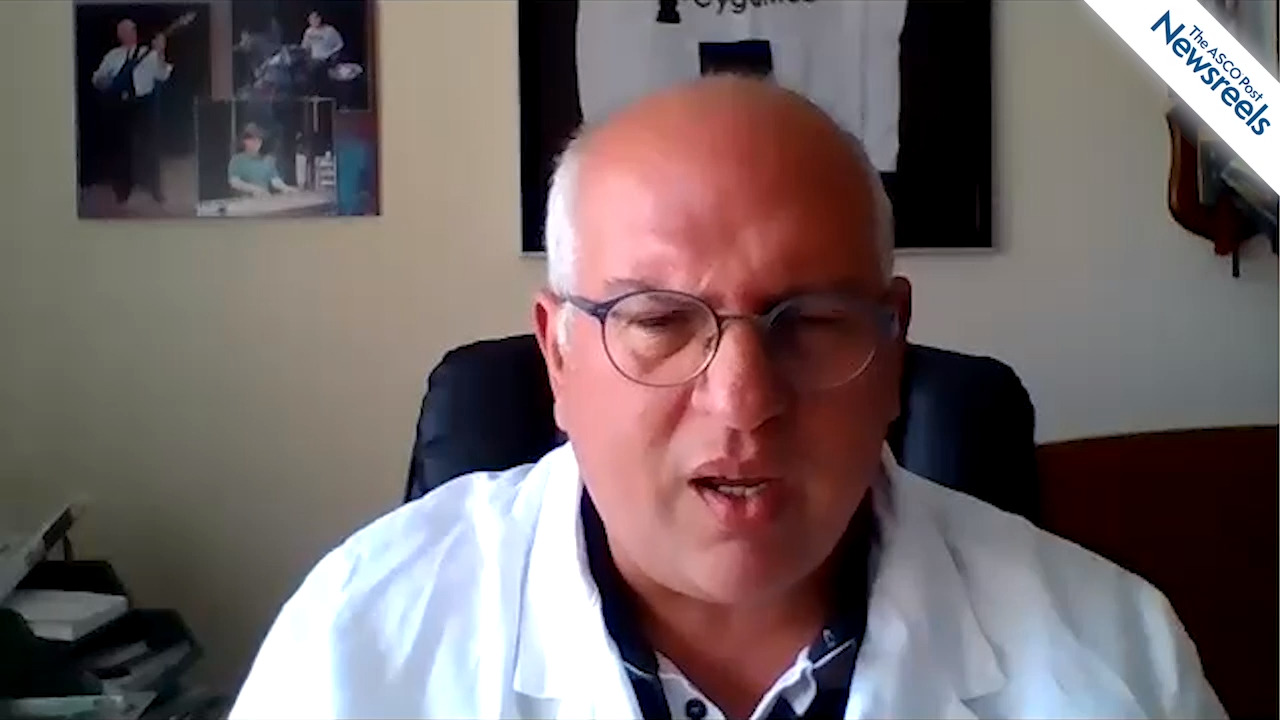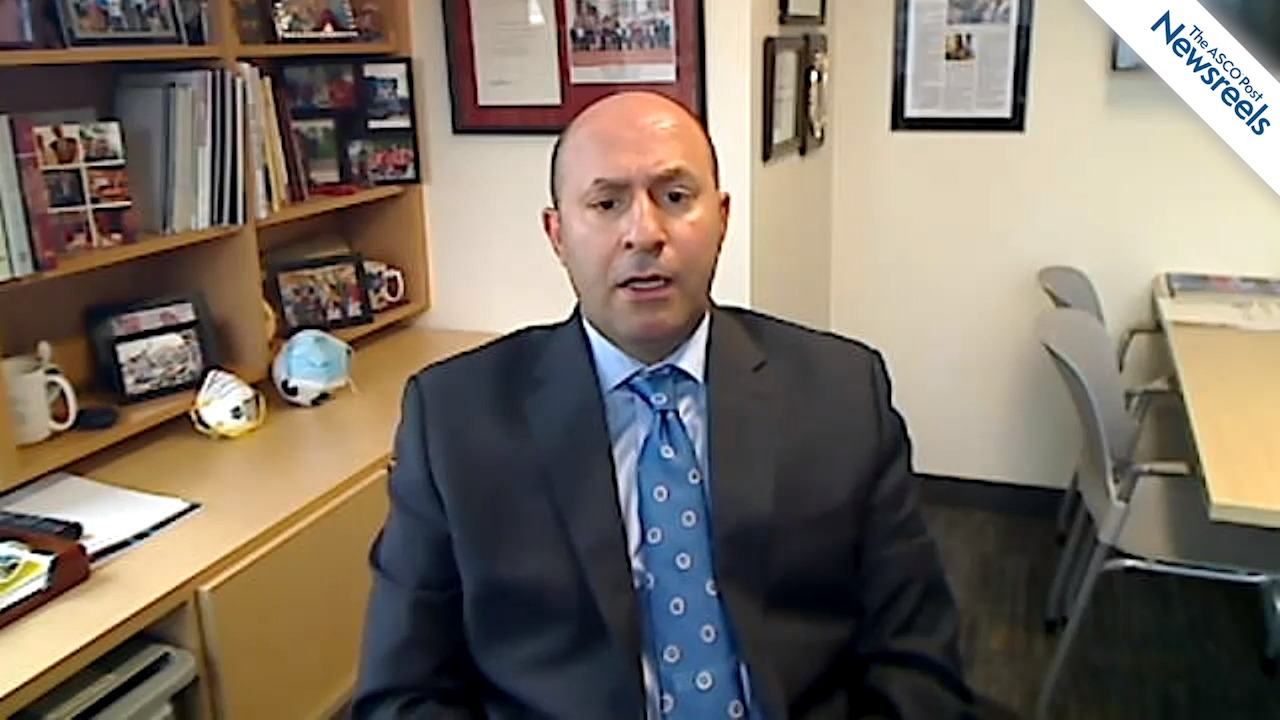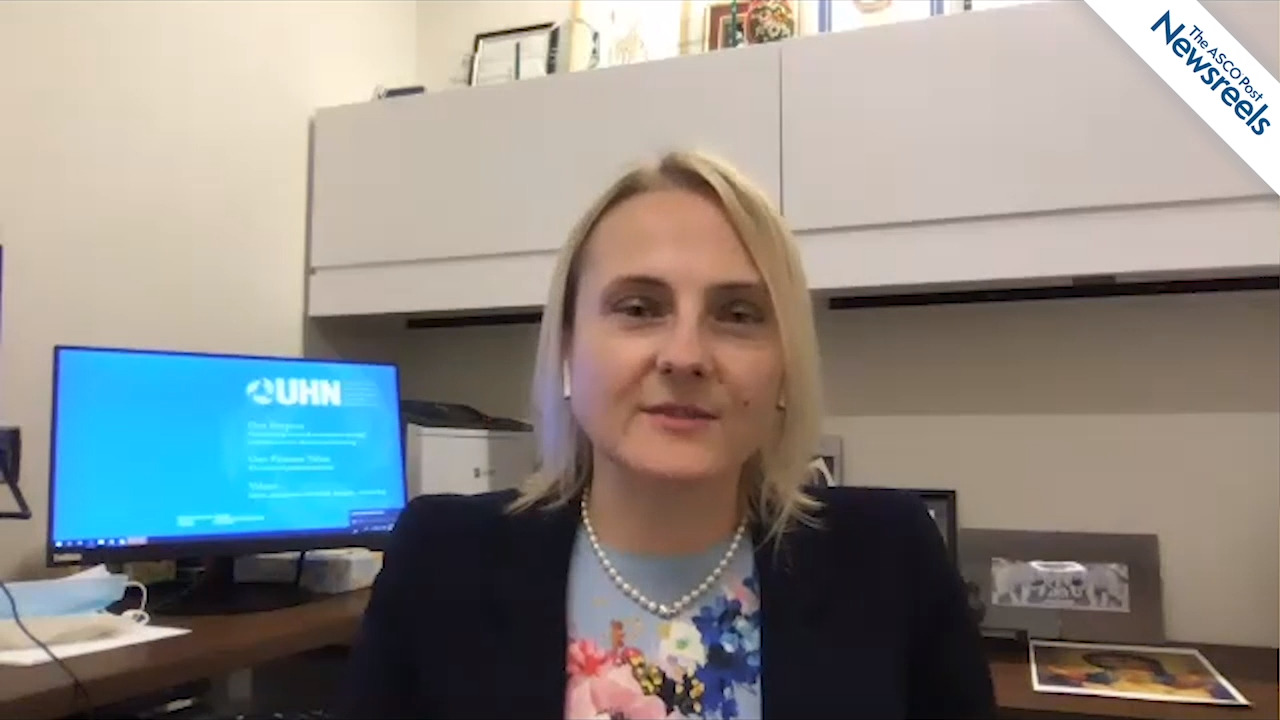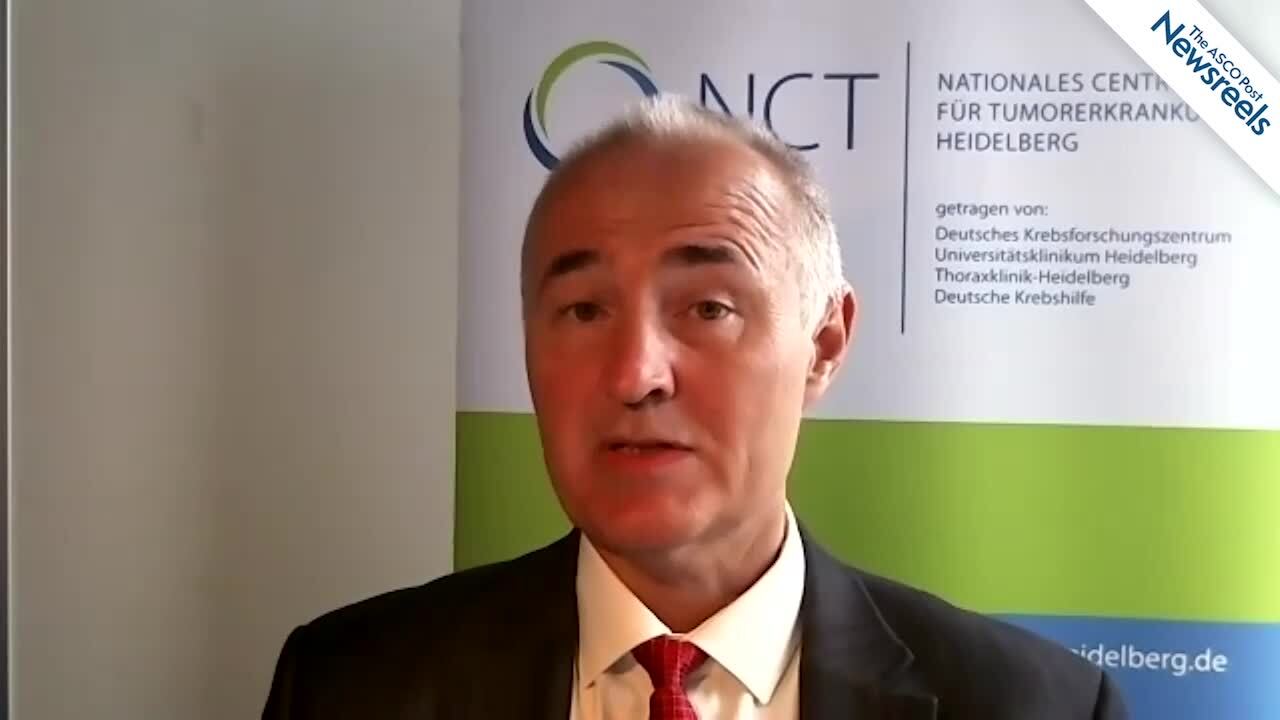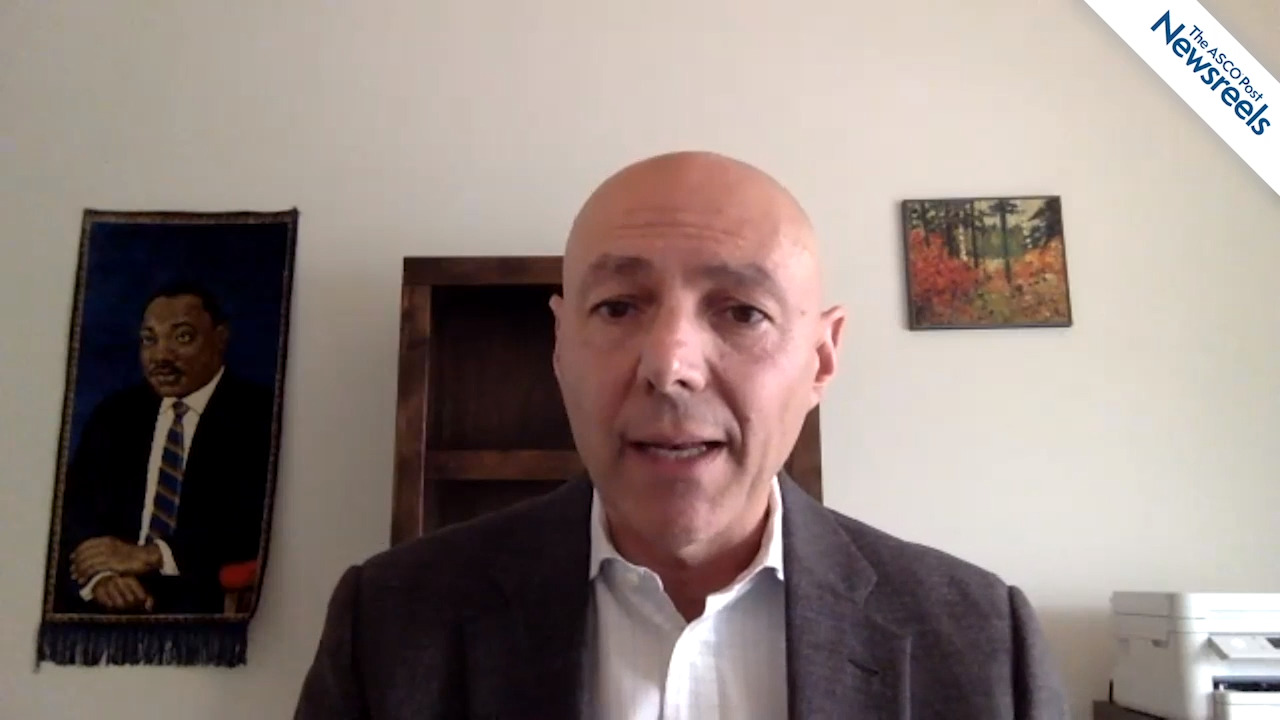Erika P. Hamilton, MD, on Breast Cancer: Abemaciclib With or Without Tamoxifen in HR-Positive, HER2-Negative Metastatic Disease
ESMO Virtual Congress 2020
Erika P. Hamilton, MD, of Sarah Cannon Research Institute, discusses results of the nextMONARCH study, which indicated that combining abemaciclib with tamoxifen improved overall survival. Dr. Hamilton also details adverse events in different arms of the study (Abstract 273O).
The ASCO Post Staff
Paolo A. Ascierto, MD, of the Istituto Nazionale Tumori, discusses phase II results on progression-free survival for patients with advanced melanoma in the SECOMBIT study, whose aim is to evaluate the different sequencing of a BRAF inhibitor (encorafenib) plus a MEK inhibitor (binimetinib) with ipilimumab plus nivolumab (Abstract LBA45).
The ASCO Post Staff
Toni K. Choueiri, MD, of Dana-Farber Cancer Institute, discusses the first results from the phase III CheckMate 9ER trial, which suggested the combination of nivolumab and cabozantinib is safe. It showed activity in progression-free and overall survival, as well as in overall response rates and may have a place in treating patients with metastatic renal cell carcinoma (Abstract 696O_PR).
The ASCO Post Staff
Monika K. Krzyzanowska, MD, MPH, of the Princess Margaret University Health Network, discusses study findings on remote proactive telephone-based toxicity management for patients with breast cancer receiving chemotherapy. Although the telehealth program was associated with fewer grade 3 toxicities and a slight decline in quality of life, it did not lead to fewer emergency department visits and hospitalizations (Abstract LBA87).
The ASCO Post Staff
Andreas Schneeweiss, MD, of the Heidelberg University Hospital and German Cancer Research Center, discusses phase III survival data from the GeparOcto trial, which compared the neoadjuvant chemotherapy intense dose-dense EPC (epirubicin, paclitaxel, and cyclophosphamide) with weekly paclitaxel and liposomal doxorubicin (with or without carboplatin in triple-negative breast cancer) for patients with high-risk early breast cancer (Abstract 160O).
The ASCO Post Staff
Ezra E.W. Cohen, MD, of the University of California, San Diego, discusses primary results of the phase III JAVELIN trial of locally advanced squamous cell carcinoma of the head and neck, in which the immune checkpoint inhibitor avelumab was combined with chemoradiotherapy followed by avelumab maintenance. Although the study results were negative, Dr. Cohen suggests other regimens that may prove to be effective (Abstract 910O).
